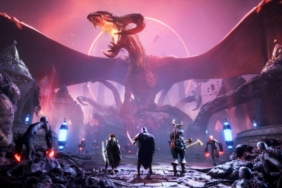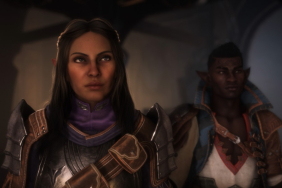Assassin’s Creed games have long served as a comforting escape for players, blending historical exploration with engaging gameplay. With the release of Assassin’s Creed: Shadows, it appears that the developers have embraced this soothing formula more effectively than ever before.
Having invested approximately 40 hours into Shadows, which I estimate places me around 30 percent through the game, I can confidently say it’s one of the standout titles in the franchise’s extensive history.
While several previous entries have ventured into innovative territory, Shadows adopts a more refined approach. It skillfully integrates the best features from the last decade of gaming into a streamlined, enjoyable experience.
This strategy provides much-appreciated relief, and it is commendable that Ubisoft has keenly recognized its audience’s preferences. The company has illustrated that AAA publishers can benefit from delaying a game to prioritize quality.
Choosing wisely
Shadows marks the latest installment in the 18-year-old series, developed by a collaborative effort between Ubisoft Montreal and Ubisoft Quebec, known for their work on titles such as Assassin’s Creed IV: Black Flag and Assassin’s Creed Odyssey.
Following the lukewarm reception of 2023’s Assassin’s Creed Mirage, which was originally intended as downloadable content for Valhalla, Shadows comes with a substantial budget and the expertise of top-tier teams within Ubisoft.
The game arrives after the so-called ancient trilogy (Origins, Odyssey, and Valhalla) — a set of titles that elicited divided opinions among the fanbase.
While Odyssey represented the peak of this trilogy, it departed from traditional Assassin’s Creed mechanics. Key aspects like social stealth and urban environments gave way to what many viewed as a more simplified, open-world RPG experience, focusing on vast landscapes rather than richly detailed cities.
I personally welcomed this evolution, as I felt the series had become repetitive after years of annual releases. However, many longtime fans did not share this sentiment. Leading up to Shadows’ launch, Ubisoft faced the challenge of satisfying both longtime fans and advocates of the more recent entries. While Valhalla attempted a balance, it ultimately fell short, and Mirage elicited a warm response among a dedicated group but did not make widespread waves.
During its development, a Ubisoft leader publicly stated that Shadows would diverge significantly from Odyssey, signaling which fan demographic the game aimed to attract. Thus, it was surprising to find that upon its release, Shadows resembled Odyssey more closely than perhaps anticipated.
The detailed gear stats and synergies reinforce the RPG elements of Shadows, a design choice that extends to character customization and progression as well.
While cities and towns exist within the game, they are not the main focus; the design is more about wide-open environments and landscapes.
Similar to Odyssey, Shadows features extensive character development, gear, and RPG mechanics, but shifts its primary focus away from urban gameplay toward rural exploration, omitting social stealth. Though the game includes branching dialogue options, they may feel somewhat underdeveloped, hearkening back to the gameplay experience of The Witcher III: Wild Hunt.
Despite its similarities, many players seem to have embraced Shadows. Why is that?
The game exhibits a polish and attention to detail that some felt was lacking in Odyssey, making it challenging to hate on it just because it departs from individual expectations for the franchise’s next steps.
This success can be partly attributed to Ubisoft’s responsiveness to the feedback regarding its previous titles, in addition to their strategic decision to postpone the game’s release for a few months to refine it further.
It’s OK to delay
Ubisoft’s recent venture, Star Wars Outlaws, featuring mechanics akin to those of Assassin’s Creed, underwhelmed critics and players alike. Regardless of its commercial performance, it fell short of impressing stakeholders, prompting the company to reconsider the quality of their upcoming titles.
Echoing this sentiment, Shadows found itself facing an inevitable delay as part of a crucial strategy to ensure a superior product. The decision was made amid internal discussions about the success of the title and in light of the fluctuating reception of previous releases.
It was potentially a difficult decision, as the company was likely counting on Shadows to perform well during the vital holiday sales period. Nevertheless, the outcome has proven to be beneficial, supporting my assertion that Shadows is among the most refined and enjoyable entries in the franchise’s history.
Amid an industry often obsessed with quarterly profits, it is vital to recognize companies that prioritize quality and the well-being of their employees over rapid development cycles.
While I can’t speak for the internal experience of Ubisoft employees, I genuinely hope the additional time afforded them has positively impacted both their work satisfaction and work-life balance. Individuals who work closely with this project are welcome to reach out and share their insights.
Ultimately, players benefit from the superior product that emerged following the announcement of the delay. Historically, gamers have voiced frustration when release dates are pushed back, but delayed games should not be seen as a negative. More time in development typically correlates with a more polished final product. This approach should be welcomed by both players and industry executives, as Shadows illustrates the value of getting things right.
More dad rock, less prestige TV
Even with its positive reception, Assassin’s Creed often faces criticism from a segment of gamers who argue its commercialism and formulaic approach exemplify the pitfalls of the AAA gaming environment.
Surely, the franchise contains entries that substantiate these claims. Yet, given the success of Shadows, it is an opportune moment to explore why this series deserves recognition, particularly this latest installment.
Comparatively, Assassin’s Creed today can be likened to bands such as U2 or Tool—musical acts often classified as “dad rock.” I would go so far as to label Shadows and similar titles (like Horizon Forbidden West and Starfield) as “dad games.”
While younger gamers are engrossed in multiplayer modes of titles like Valorant and Fortnite, Shadows is tailored to resonate with players nostalgic for the single-player experiences popularized in the early 2000s and early 2010s.
These games offer cinematic graphics, expansive worlds, and gratifying objectives to check off. In an era dominated by games as a service and rapidly evolving gaming paradigms, Shadows evokes a sensibility that may soon become outdated.
The potential audience for Shadows likely includes an older demographic who fondly remembers this gaming iteration and appreciates its accessibility.
The superb graphics add to the appeal of the game.
The map is filled with engaging objectives, providing players with plenty to do.
The game allows players to explore historical content and artistic representations, enhancing the immersion into the narrative.
There is a time and place for pushing the envelope, but media that successfully navigates familiar ground deserves recognition.
As Ubisoft leaned into this established formula with Odyssey and Valhalla, critics pointed out that these titles seemed derivative—compared to more groundbreaking offerings from other developers. This led to discussions around the industry’s hesitance to innovate, driven by a fear of financial loss.
Nevertheless, prioritizing familiarity can yield a gratifying gaming experience. While I appreciate narratives that challenge traditional storytelling, there are moments when a relaxing, uncomplicated game is a welcome choice after a tiring day. Games like Assassin’s Creed have become synonymous with comfort—a product that satisfies a consistent audience.
In conclusion, Assassin’s Creed: Shadows may not redefine the genre, but it provides an expansive and enjoyable experience. It embodies the “dad gaming” genre: comfortable, refined, and reassuringly familiar. For those with finite leisure time, it is undoubtedly worthy of consideration.










